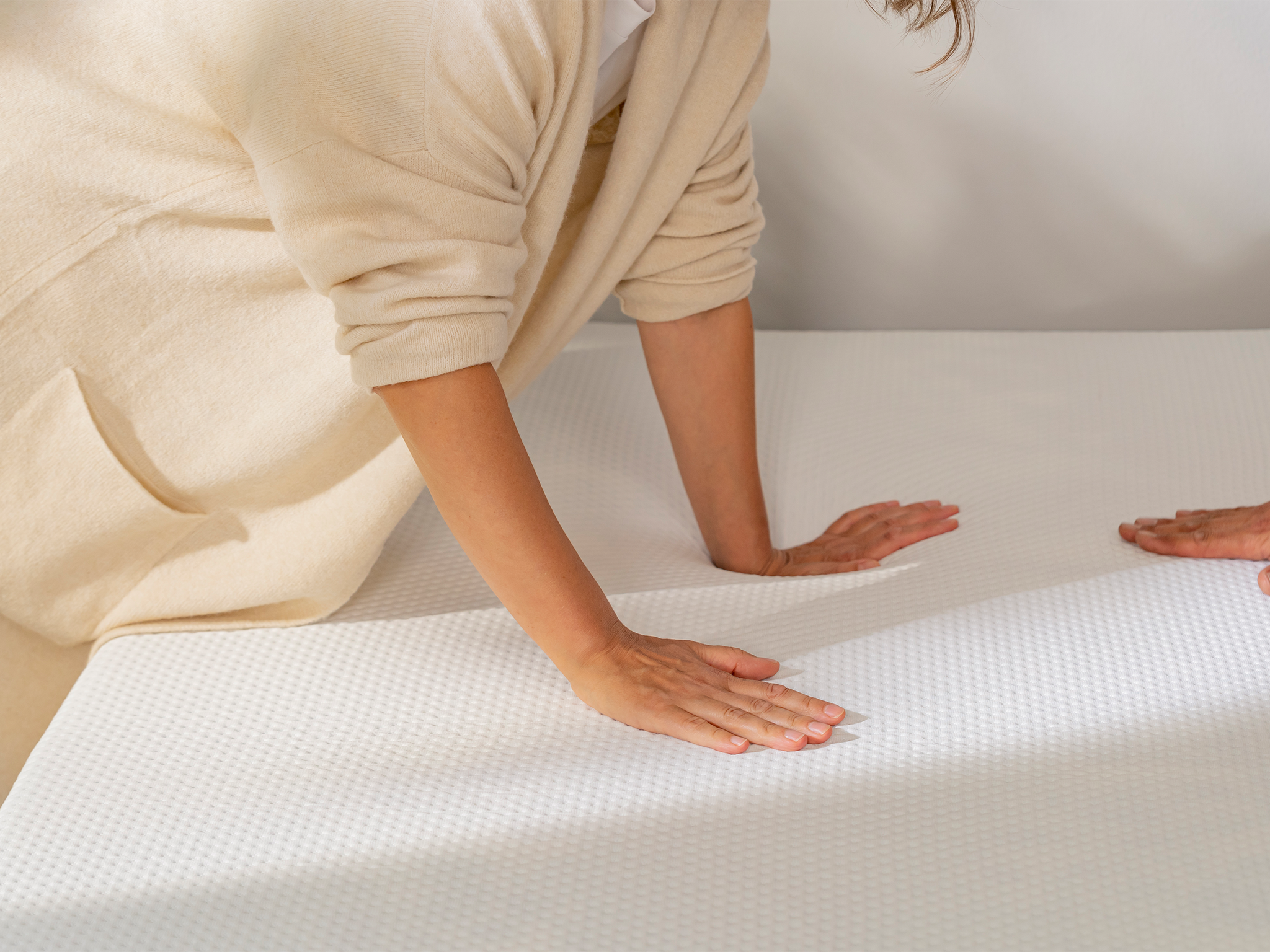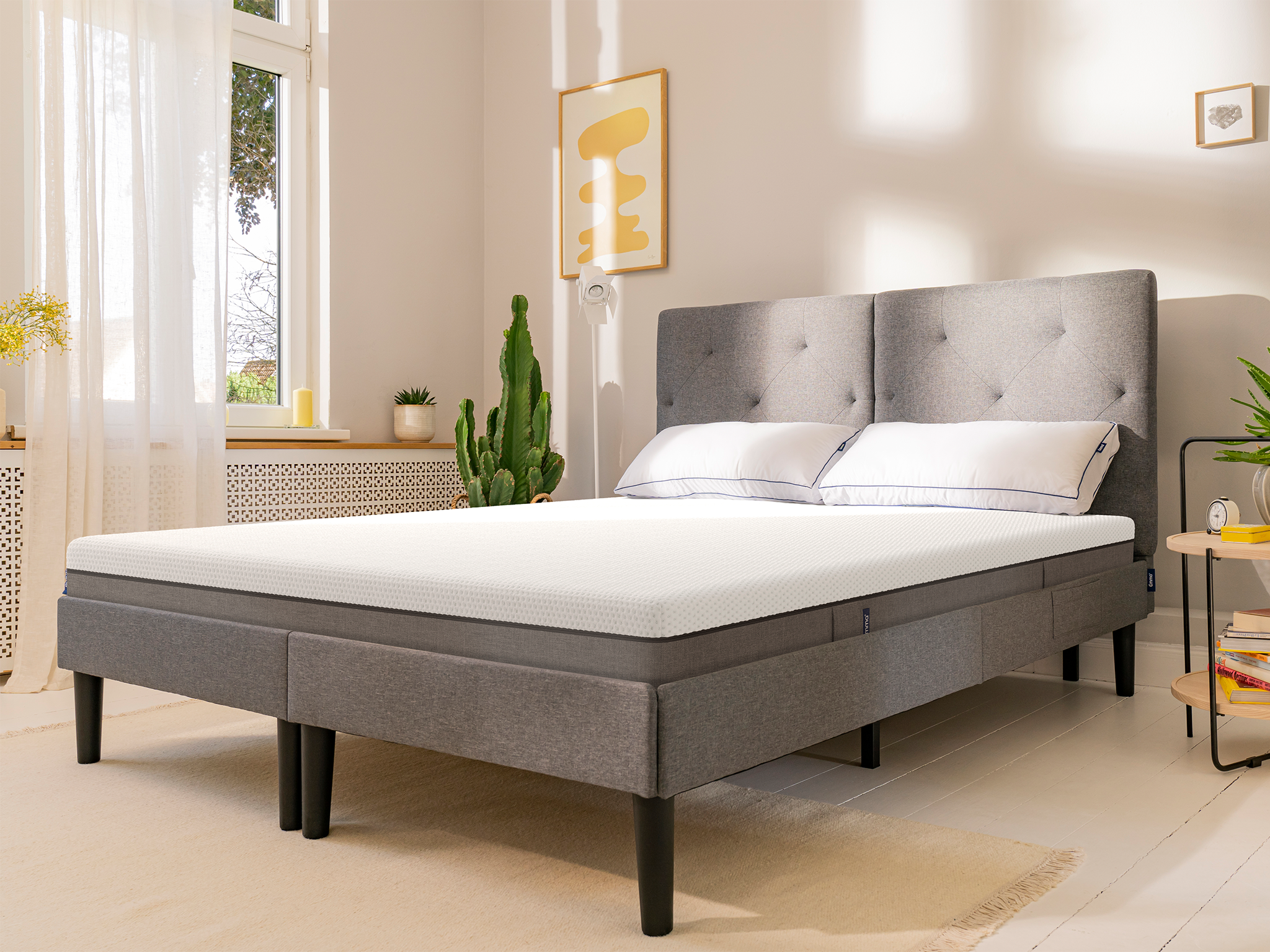
"Sleep is a natural mood booster. When you get adequate sleep each night, you wake up being the best version of yourself, giving your mind and body the time it needs to recharge and wake up feeling refreshed.” Said Dr Verena Senn, neurobiologist and Head of Sleep Research at Emma – the sleep company.
“Think of getting optimal sleep, at least seven to nine hours a night, like recharging a battery. When the battery is fully charged, it has the positive energy and motivation it needs to perform well in all areas of life," Dr Senn added. And the arrival of spring brings just that, a renewal of energy, motivation and a push to develop better habits.
We spend nearly a third of our life sleeping, our physical and mental well-being rely on it, and the Emma Easter sale is full of discounted mattresses to spend this time on – just take a look.
Sleep strengthens our memory capabilities and immune system, regulates our body’s metabolic and hormonal processes, and helps balance our emotions. It prepares our bodies and minds for the day ahead, recovers energy, and restores tissues after daily exercise.
Exercise regularly to beat insomnia

Insomnia is a sleep disorder that affects millions of people and is classed as either primary or secondary. Primary insomnia refers to a long-term condition that is treated by a doctor. While secondary insomnia includes falling asleep, staying asleep, and/or poor sleep quality, which can all be triggered by stress, certain medications, trauma, and several other issues.
Secondary Insomnia can be treated with a variety of lifestyle changes listed below, a quality mattress – take a look at the Emma spring sale – and cognitive therapy can even help in some cases.
Relaxation techniques to combat sleep problems

"It’s good to have your own bedtime routine based on your personal preferences in order to sleep better. A bedtime routine can include one or more soothing practices and different relaxation techniques that help reduce blood pressure and heart rate, allowing you to fall asleep faster. Your bedtime routine can also include a set bedtime schedule that can be easily followed and maintained. Most people fall asleep between 9pm and 1am because that’s when body temperature drops and melatonin production increases, making it easier to fall asleep. Sticking to the same bedtimes helps your body maintain its internal clock and will not only improve your sleep but also have a positive impact on all regular daytime behaviours, such as eating and metabolism,” said Dr Verena Senn, and outlined three key sleep-aiding techniques below.
1. Breathing techniques
Breathing slowly is beneficial for the body and mind as it helps to de-stress and produce more melatonin, the sleep hormone that helps you fall asleep. One of the simplest and most popular breathing techniques is the 4-7-8 breathing method. Breathe in through your nose to the count of 4, hold your breath to the count of 7, breathe out through your mouth to the count of 8. Repeating these steps three more times can help you fall asleep.
2. Visualization techniques through meditation
To visualise, start by getting into a comfortable position, close your eyes and breathe slowly and deeply. Choose a place, object or colour and try to visualise it. Continue to breathe while holding that thought in your mind and think about what it means to you. This technique can help you fall asleep quickly and drift off to sleep.
3. Muscle techniques
Muscle techniques involve contracting different muscles in your body and then releasing the tension. Start with your upper arms, flex your biceps, and release the tension in your muscles. Then flex your forearms and let them relax slowly and continue this across your body.
11 tips for better sleep:
- Have a regular bedtime routine
- Adopt sleep hygiene practices
- Do not lie in bed awake
- For some people: Exercise at least 30 minutes a day but no later than two to three hours before bedtime. For others: Exercise at least one hour a day with the same bedtime cap
- Do not take naps after 3pm
- Avoid caffeine, nicotine and alcoholic drinks at least two to three hours before bedtime
- Avoid large or heavy meals and drinks late in the evening
- Give yourself time to relax before going to bed (not by watching TV)
- Keep your bedroom dark, cool and free from any electronic devices, such as phones, tablets, laptops, TVs, etc.
- Take a hot bath, cuddle with a loved one or make yourself comfortable in a fluffy, warm blanket before bed
- Invest in a comfortable, high-quality mattress, pillow and bed linen
Take advantage of Emma’s Easter campaign with discounts across mattresses, bed frames, pillows and accessories. Use code ‘Independent’ for an extra six per cent off.







